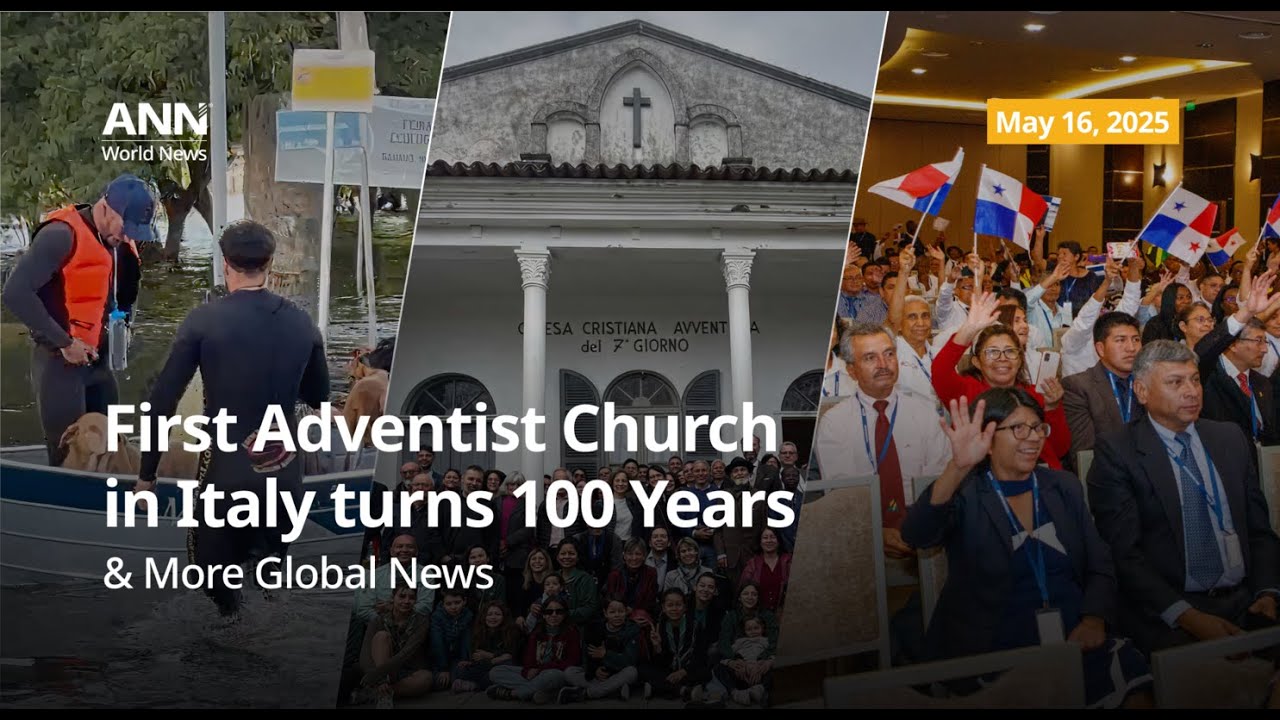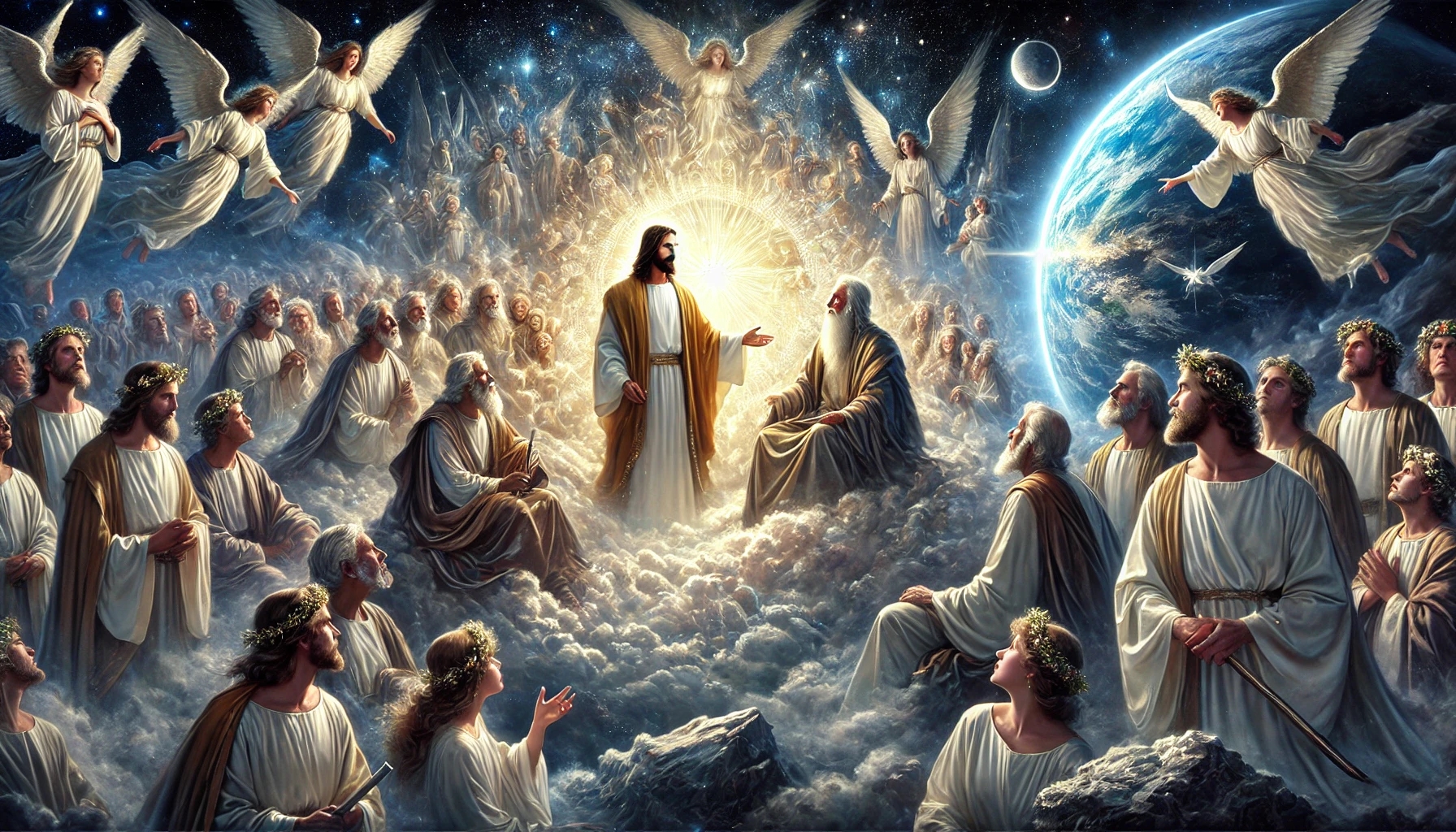 May 17, 2025
May 17, 2025
 DAILY BIBLE READING
DAILY BIBLE READING
 Genesis 31 – Jacob’s Return Home: From Deception to Reconciliation Under God’s Protection
Genesis 31 – Jacob’s Return Home: From Deception to Reconciliation Under God’s Protection
══════════════════════════════════════════════
 Bible Text – Genesis 31 (KJV)
Bible Text – Genesis 31 (KJV)
1 And he heard the words of Laban’s sons, saying, Jacob hath taken away all that was our father’s; and of that which was our father’s hath he gotten all this glory.
2 And Jacob beheld the countenance of Laban, and, behold, it was not toward him as before.
3 And the Lord said unto Jacob, Return unto the land of thy fathers, and to thy kindred; and I will be with thee.
4 And Jacob sent and called Rachel and Leah to the field unto his flock,
5 And said unto them, I see your father’s countenance, that it is not toward me as before; but the God of my father hath been with me.
6 And ye know that with all my power I have served your father.
7 And your father hath deceived me, and changed my wages ten times; but God suffered him not to hurt me.
8 If he said thus, The speckled shall be thy wages; then all the cattle bare speckled: and if he said thus, The ringstraked shall be thy hire; then bare all the cattle ringstraked.
9 Thus God hath taken away the cattle of your father, and given them to me.
10 And it came to pass at the time that the cattle conceived, that I lifted up mine eyes, and saw in a dream, and, behold, the rams which leaped upon the cattle were ringstraked, speckled, and grisled.
11 And the angel of God spake unto me in a dream, saying, Jacob: And I said, Here am I.
12 And he said, Lift up now thine eyes, and see, all the rams which leap upon the cattle are ringstraked, speckled, and grisled: for I have seen all that Laban doeth unto thee.
13 I am the God of Bethel, where thou anointedst the pillar, and where thou vowedst a vow unto me: now arise, get thee out from this land, and return unto the land of thy kindred.
14 And Rachel and Leah answered and said unto him, Is there yet any portion or inheritance for us in our father’s house?
15 Are we not counted of him strangers? for he hath sold us, and hath quite devoured also our money.
16 For all the riches which God hath taken from our father, that is ours, and our children’s: now then, whatsoever God hath said unto thee, do.
17 Then Jacob rose up, and set his sons and his wives upon camels;
18 And he carried away all his cattle, and all his goods which he had gotten, the cattle of his getting, which he had gotten in Padanaram, for to go to Isaac his father in the land of Canaan.
19 And Laban went to shear his sheep: and Rachel had stolen the images that were her father’s.
20 And Jacob stole away unawares to Laban the Syrian, in that he told him not that he fled.
21 So he fled with all that he had; and he rose up, and passed over the river, and set his face toward the mount Gilead.
22 And it was told Laban on the third day that Jacob was fled.
23 And he took his brethren with him, and pursued after him seven days’ journey; and they overtook him in the mount Gilead.
24 And God came to Laban the Syrian in a dream by night, and said unto him, Take heed that thou speak not to Jacob either good or bad.
25 Then Laban overtook Jacob. Now Jacob had pitched his tent in the mount: and Laban with his brethren pitched in the mount of Gilead.
26 And Laban said to Jacob, What hast thou done, that thou hast stolen away unawares to me, and carried away my daughters, as captives taken with the sword?
27 Wherefore didst thou flee away secretly, and steal away from me; and didst not tell me, that I might have sent thee away with mirth, and with songs, with tabret, and with harp?
28 And hast not suffered me to kiss my sons and my daughters? thou hast now done foolishly in so doing.
29 It is in the power of my hand to do you hurt: but the God of your father spake unto me yesternight, saying, Take thou heed that thou speak not to Jacob either good or bad.
30 And now, though thou wouldest needs be gone, because thou sore longedst after thy father’s house, yet wherefore hast thou stolen my gods?
31 And Jacob answered and said to Laban, Because I was afraid: for I said, Peradventure thou wouldest take by force thy daughters from me.
32 With whomsoever thou findest thy gods, let him not live: before our brethren discern thou what is thine with me, and take it to thee. For Jacob knew not that Rachel had stolen them.
33 And Laban went into Jacob’s tent, and into Leah’s tent, and into the two maidservants’ tents; but he found them not. Then went he out of Leah’s tent, and entered into Rachel’s tent.
34 Now Rachel had taken the images, and put them in the camel’s furniture, and sat upon them. And Laban searched all the tent, but found them not.
35 And she said to her father, Let it not displease my lord that I cannot rise up before thee; for the custom of women is upon me. And he searched but found not the images.
36 And Jacob was wroth, and chode with Laban: and Jacob answered and said to Laban, What is my trespass? what is my sin, that thou hast so hotly pursued after me?
37 Whereas thou hast searched all my stuff, what hast thou found of all thy household stuff? set it here before my brethren and thy brethren, that they may judge betwixt us both.
38 This twenty years have I been with thee; thy ewes and thy she goats have not cast their young, and the rams of thy flock have I not eaten.
39 That which was torn of beasts I brought not unto thee; I bare the loss of it; of my hand didst thou require it, whether stolen by day, or stolen by night.
40 Thus I was; in the day the drought consumed me, and the frost by night; and my sleep departed from mine eyes.
41 Thus have I been twenty years in thy house; I served thee fourteen years for thy two daughters, and six years for thy cattle: and thou hast changed my wages ten times.
42 Except the God of my father, the God of Abraham, and the fear of Isaac, had been with me, surely thou hadst sent me away now empty. God hath seen mine affliction and the labour of my hands, and rebuked thee yesternight.
43 And Laban answered and said unto Jacob, These daughters are my daughters, and these children are my children, and these cattle are my cattle, and all that thou seest is mine: and what can I do this day unto these my daughters, or unto their children which they have born?
44 Now therefore come thou, let us make a covenant, I and thou; and let it be for a witness between me and thee.
45 And Jacob took a stone, and set it up for a pillar.
46 And Jacob said unto his brethren, Gather stones; and they took stones, and made an heap: and they did eat there upon the heap.
47 And Laban called it Jegarsahadutha: but Jacob called it Galeed.
48 And Laban said, This heap is a witness between me and thee this day. Therefore was the name of it called Galeed;
49 And Mizpah; for he said, The Lord watch between me and thee, when we are absent one from another.
50 If thou shalt afflict my daughters, or if thou shalt take other wives beside my daughters, no man is with us; see, God is witness betwixt me and thee.
51 And Laban said to Jacob, Behold this heap, and behold this pillar, which I have cast betwixt me and thee:
52 This heap be witness, and this pillar be witness, that I will not pass over this heap to thee, and that thou shalt not pass over this heap and this pillar unto me, for harm.
53 The God of Abraham, and the God of Nahor, the God of their father, judge betwixt us. And Jacob sware by the fear of his father Isaac.
54 Then Jacob offered sacrifice upon the mount, and called his brethren to eat bread: and they did eat bread, and tarried all night in the mount.
55 And early in the morning Laban rose up, and kissed his sons and his daughters, and blessed them: and Laban departed, and returned unto his place.
══════════════════════════════════════════════
 Introduction
Introduction
After twenty years serving Laban, Jacob senses it is time to go home. Laban grows hostile, and the LORD calls Jacob back to Canaan. But his departure triggers a secret flight, Laban’s pursuit, a tense standoff, and ultimately a peaceful covenant. In this chapter we see human fear and divine protection intersect. Jacob matures into a man of responsibility, defending his family and asserting his rights—yet he continually experiences God’s faithful care.
══════════════════════════════════════════════
 Commentary
Commentary
-
Hostility and Divine Call (vv. 1–3)
Accusations from Laban’s sons and a changing attitude in Laban prompt Jacob to hear God’s voice: “Return… I am with you.” God’s call comes amid conflict, not calm. -
Family Council in the Field (vv. 4–16)
Jacob gathers Rachel and Leah to explain Laban’s deceit and God’s intervention. The two sisters side with Jacob, affirming God’s redistribution of their father’s wealth. Jacob now leads as patriarch. -
Secret Flight and Rachel’s Theft (vv. 17–21)
Jacob escapes at night with his wives, children, and livestock. Rachel stealthily takes her father’s household idols. Their departure blends faithful obedience and human deception. -
Laban’s Pursuit and God’s Warning (vv. 22–24)
Laban pursues Jacob for seven days, but God warns him in a dream to speak kindly to Jacob. God defends His servant by sovereign intervention. -
Confrontation and False Accusations (vv. 25–35)
Laban reproaches Jacob for fleeing secretly and accuses him of theft. Unaware that Rachel stole the idols, Jacob endures questioning until Rachel diverts suspicion with a feigned menstrual excuse. -
Jacob’s Justified Rebuttal (vv. 36–42)
Jacob recounts twenty years of honest labor, hardship, and Laban’s repeated wage changes, crediting God’s hand for his prosperity and survival. “But God… has seen my affliction,” he declares. -
The Covenant of Reconciliation (vv. 43–55)
Despite tensions, Laban proposes a covenant. They set up a heap of stones and a pillar as mutual witness. Jacob swears by “the fear of Isaac,” and they share a meal—symbolizing restored peace.
══════════════════════════════════════════════
 Summary
Summary
In Genesis 31 Jacob heeds God’s call, flees Laban’s household, is pursued, yet is miraculously protected. Conflict gives way to an honest confrontation and a covenant of peace. Jacob emerges a seasoned leader under divine guardianship, demonstrating both human frailty and God’s unbroken faithfulness.
══════════════════════════════════════════════
 Message for Today
Message for Today
-
God’s call often comes amid turmoil. We can trust His guidance even in the midst of conflict.
-
Divine protection is subtle. God may watch over us by redirecting the hearts of others, not by grand displays of power.
-
Reconciliation is possible even after long-standing disputes—through mutual honesty and God’s enabling.
-
Honest reflection on God’s past faithfulness empowers us to trust Him for the future.
-
Covenants before God remind us that our highest accountability is to Him—our ultimate witness and judge.
~~~~~  ~~~~~
~~~~~

 May 11–17, 2025
May 11–17, 2025
 WEEKLY SPIRIT OF PROPHECY READING
WEEKLY SPIRIT OF PROPHECY READING
 Ellen G. White │ Patriarchs and Prophets – Chapter 4
Ellen G. White │ Patriarchs and Prophets – Chapter 4
 “The Plan of Redemption”
“The Plan of Redemption”
 Read online here
Read online here
══════════════════════════════════════════════
 Introduction
Introduction
Chapter 4 of Patriarchs and Prophets, titled “The Plan of Redemption,” offers a profound glimpse into the heart of the Christian gospel. It portrays the cosmic significance of the Fall and God’s response through the redemptive work of Jesus Christ. From heaven’s anguish over humanity’s sin to the unfolding of the rescue plan in Christ’s sacrifice, the text reveals the unfathomable depth of God’s love.
══════════════════════════════════════════════
 Commentary
Commentary
- Heavenly Sorrow and Christ’s Compassion
After the Fall, all heaven mourns. The Son of God is moved with pity. Though the Creator could have left humanity to death, His love seeks a way of salvation. - The “Counsel of Peace” and Christ’s Self-Sacrifice
Redemption is decreed in an eternal, loving agreement between the Father and the Son. Christ volunteers Himself as the ransom—an act that fills the angels with both awe and sorrow. - The Role of the Angels in the Plan of Redemption
The angels cannot bear the burden of atonement, but they are commissioned to minister to humanity, to accompany Christ in His humiliation, and to support the unfolding of the redemption plan. - The Universal Significance of Christ’s Sacrifice
Christ’s offering matters not only for mankind but for the entire universe. It answers questions about God’s justice, the unchangeable nature of His law, and the character of Satan. - The First Promise in the Garden of Eden
Genesis 3:15 is presented as the “gospel in seed form.” It promises victory over Satan through the “seed of the woman,” ultimately fulfilled in Jesus Christ. - Hope Despite Judgment
Although humanity has fallen, hope remains. Through repentance and faith, people can be restored as children of God. - The Sacrificial Service as Symbol
The offerings continually reminded Adam of human sinfulness and the need for an atoning sacrifice. His first sacrifice was both painful and instructive. - The Cosmic Dimension of Redemption
The plan of salvation demonstrates God’s justice and mercy to all creation. It upholds God as righteous while exposing Satan as accuser and deceiver. - The Significance of the Immutable Law
If God’s law were changeable, Christ’s death would have been unnecessary. Instead, His sacrifice confirms the eternal and just character of the law.
══════════════════════════════════════════════
 Summary
Summary
The plan of redemption reveals God’s character—infinitely loving and perfectly just. Despite the depth of humanity’s fall, God offers restoration through Jesus Christ. Heaven, the universe, and humankind alike bear witness to the greatness of this plan, which was ordained before the foundation of the world.
══════════════════════════════════════════════
 Application for Today
Application for Today
- God sees our condition but does not abandon us.
- His love goes so far that He Himself bears the punishment we deserve.
- Christ is our substitute, our mediator, and our Savior.
- Faith in Him opens the way to forgiveness, life, and a future with God.
- Every person today has the opportunity to become part of this redemption.
“For God so loved the world, that he gave his only begotten Son, that whosoever believes in him should not perish but have everlasting life.”
— John 3:16
Source: https://fulfilleddesire.net/17-05-2025-genesis-chapter-31-believe-his-prophets/



 Lesson 7:
Lesson 7:  Introduction
Introduction




 May 16, 2025
May 16, 2025 DAILY BIBLE READING
DAILY BIBLE READING Genesis 30 – Between Rivalry and Riches: Jacob’s Children and God’s Work Amid Human Weakness
Genesis 30 – Between Rivalry and Riches: Jacob’s Children and God’s Work Amid Human Weakness Bible Text – Genesis 30 (KJV)
Bible Text – Genesis 30 (KJV) Introduction
Introduction Commentary
Commentary Summary
Summary Message for Today
Message for Today ~~~~~
~~~~~
 May 11–17, 2025
May 11–17, 2025

 Lesson 7:
Lesson 7:  Introduction
Introduction





